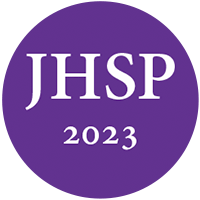The professional home for health service psychologists.
Join a community of 15,000 psychologists and trainees.
Learn it today. Apply it tomorrow.
Connecting you to what you need in your career.
Making a difference.
Allan, R. (2019). Psychological treatment of cardiac patients. Journal of Health Service Psychology, 45, 72–78.
Coronary heart disease (CHD) is the leading cause of death and disability in the United States and worldwide. Psychosocial factors affect both the onset and outcome of CHD. Psychologists are in a unique position to have an impact on CHD patients’ quality of life, disease progression, and perhaps even mortality. This article describes the process and issues encountered in such treatment.
Registrants can read the full article on CE.NationalRegister.org
Allan, R. A psychologist on the step-down coronary care unit. (2018). Journal of IntegrativeCardiology. Volume 4(1): 1-3 DOI: 10.15761/JIC.1000231
Allan, R., Pace, T.M., & Yaser. Y. (2018). Behavioral Cardiology/Cardiac Psychology: Translating research into practice. Journal of Integrative Cardiology, Volume 4(6): 1-3. DOI: 10.15761/JIC.1000265
Allan, R., & Scheidt, S. S. (Eds.). (1996). Heart & mind: The practice of cardiac psychology. Washington, DC, American Psychological Association.
Allan, R., & Fisher, J. (Eds.) (2012). Heart and Mind: The Practice of Cardiac Psychology, Second Edition. Washington, DC, American Psychological Association
Allan, R. (2010). Getting control of your anger. Dubuque, IA: McGraw-Hill Contemporary Learning.
American Heart Association. (2015, July 31). Heart Attack Symptoms in Women. Retrieved from https://www.heart.org/en/health-topics/heart-attack/warning-signs-of-a-heart-attack/heart-attack-symptoms-in-women
American Heart Association. (2018, January 31). Heart Disease and Stroke Statistics—2018 Update: A Report from the American Heart Association. Retrieved from https://www.heart.org/en/about-us/heart-and-stroke-association-statistics
Anderson, L., Thompson, D.R., Oldridge, N., Swisler, A.D., Rees, K., Martin, N. Taylor, R.S. (2016). Exercise‐based cardiac rehabilitation for coronary heart disease. Cochrane Database of Systematic Reviews. DOI: 10.1002/14651858.CD001800.pub3
Burg, M.M., & Soufer, R. (2016). Post-traumatic stress disorder and cardiovascular disease. Current Cardiology Reports. 18:94. https://doi/10.1007/s11886-016-0770-5
Burg, M.M. (2018). Psychological Treatment of Cardiac Patients. American Psychological Association. Washington, DC.
Blumenthal, J. A., Sherwood, A., Smith, P. J., Watkins, L., Mabe, S., Kraus, W. E., . . . Hinderliter, A. (2016). Enhancing Cardiac Rehabilitation with Stress Management Training. Circulation,133(14), 1341-1350. doi:10.1161/circulationaha.115.018926
Boehm, J. K., & Kubzansky, L. D. (2012). The hearts content: The association between positive psychological well-being and cardiovascular health. Psychological Bulletin,138(4), 655-691. doi:10.1037/a0027448
Chida, Y., & Steptoe, A. (2009). The Association of Anger and Hostility with Future Coronary Heart Disease. Journal of the American College of Cardiology,53(11), 936-946. doi:10.1016/j.jacc.2008.11.044
Emdin, C. A., Odutayo, A., Wong, C. X., Tran, J., Hsiao, A. J., & Hunn, B. H. (2016). Meta-Analysis of Anxiety as a Risk Factor for Cardiovascular Disease. The American Journal of Cardiology,118(4), 511-519. doi:10.1016/j.amjcard.2016.05.041.
Friedman, M., Thoresen, C. E., Gill, J. J., Ulmer, D., Powell, L. H., Price, V. A., . . . Dixon, T. (1986). Alteration of type A behavior and its effect on cardiac recurrences in post myocardial infarction patients: Summary results of the recurrent coronary prevention project. American Heart Journal,112(4), 653-665. doi:10.1016/0002-8703(86)90458-8
Friedman, M., & Rosenman, R.H. (1959) Association of specific overt behavior pattern with blood and cardiovascular findings: blood cholesterol level, blood clotting time, incidence of arcus senilis, and clinical coronary artery disease. Journal of the American Medical Association. 169(12):1286-1296. doi:10.1001/jama.1959.03000290012005
Gan, Y., Gong, Y., Tong, X., Sun, H., Cong, Y., Dong, X., . . . Lu, Z. (2014). Depression and the risk of coronary heart disease: A meta-analysis of prospective cohort studies. BMC Psychiatry,14(1). doi:10.1186/s12888-014-0371-z
Ironson, G., Taylor, G., Boltwood, C.B., Bartzokis, T., Dennis, C., Chesney, M., Spitzer, S., Segall, .(1992). Effects of anger on left ventricular ejection fraction in coronary artery disease. American Journal of Cardiology, 70;281-285.
Jha, M.K., Qamar, A., Vaduganathan, M., Charney, D.S., & Murrough, J.W. (2019) Screening and management of depression in patients with cardiovascular disease: JAVV state of the art review.
Journal of the American College of Cardiology. 16;73(14):1827-1845. doi: 10.1016/j.jacc.2019.01.041.
Kupper, N., & Denollet, J. (2018). Type D personality as a risk factor in coronary heart disease: a review of current evidence. Current Cardiology Review, Sept 12:20(11) 104. doi: 10.1007/s11886-018-1048-x.
Lampert R., Shusterman V., Burg M., Batsford W., McPherson C., Soufer R. (2009). Anger-induced T-wave alternans predicts future ventricular arrhythmias in patients with implantable cardioverter-defibrillators. J Am Coll Cardiol. 2009;53:774–778.
Lichtman, J. H., Froelicher, E. S., Blumenthal, J. A., Carney, R. M., Doering, L. V., Frasure-Smith, N., . . . Wulsin, L. (2014). Depression as a Risk Factor for Poor Prognosis Among Patients With Acute Coronary Syndrome: Systematic Review and Recommendations. Circulation,129(12), 1350-1369. doi:10.1161/cir.0000000000000019
Mostofsky, E., Penner, E. A., & Mittleman, M. A. (2014). Outbursts of anger as a trigger of acute cardiovascular events: A systematic review and meta-analysis. European Heart Journal,35(21), 1404-1410. doi:10.1093/eurheartj/ehu033
Naderi, S. H., Bestwick, J. P., & Wald, D. S. (2012). Adherence to Drugs That Prevent Cardiovascular Disease: Meta-analysis on 376,162 Patients. The American Journal of Medicine,125(9). doi:10.1016/j.amjmed.2011.12.013
Ornish, D., Brown, S. E., Scherwitz, L. W., Billings, J. H., Armstrong, W. T., Ports, T. A., . . . Gould, K. L. (1990). Can lifestyle changes reverse coronary heart disease? The Lifestyle Heart Trial. Lancet 1990 Jul 21;336(8708):129-133.
Pan, A., Sun, Q., Okereke, O. I., Rexrode, K. M., & Hu, F. B. (2011). Depression and Risk of Stroke Morbidity and Mortality. Journal of the American Medical Association, 306(11), 1241. doi:10.1001/jama.2011.1282
Ragland, D. R., & Brand, R. J. (1988). Type a Behavior and Mortality from Coronary Heart Disease. New England Journal of Medicine,318(2), 65-69. doi:10.1056/nejm198801143180201
Richards, S. H., Anderson, L., Jenkinson, C. E., Whalley, B., Rees, K., Davies, P., . . . Taylor, R. S. (2017). Psychological interventions for coronary heart disease: Cochrane systematic review and meta-analysis. European Journal of Preventive Cardiology,25(3), 247-259. doi:10.1177/2047487317739978
Rosenman, R. H. (1975). Coronary heart disease in Western Collaborative Group Study. Final follow-up experience of 8 1/2 years. Journal of the American Medical Association,233(8), 872-877. doi:10.1001/jama.233.8.872
Tulloch, H.E. & Greenam, P.S. (2018). In sickness and health: Relationship quality and cardiovascular risk management. Current Opinion in Cardiology, 33, 521-528.
Valtorta, N. K., Kanaan, M., Gilbody, S., Ronzi, S., & Hanratty, B. (2016). Loneliness and social isolation as risk factors for coronary heart disease and stroke: Systematic review and meta-analysis of longitudinal observational studies. Heart,102(13), 1009-1016. doi:10.1136/heartjnl-2015-308790.
Vilchinsky, N. (2017). Undiagnosed, untreated, unknown: PTSD among cardiac patients’ partners. Frontiers in Psychology, 8, 1-3.
Vilchinsky, N., Dekel, R., Revenson, T.A., Liberman, G. & Mosseri, M. (2015). Cardiac caregivers’ burden and depressive symptoms: The moderational role of attachment orientations. Health Psychology, 34, 262–269.
Vlachaki, C.P. & Maridaki-Kassotaki, S; (2013). Global Journal of Health Science, Sept 23; 5(6): 156-165. doi:10.5539/gihs.v5n6p156.
Xu, S., Huang, Y., Xiao, J., Zhu, W., Wang, L., Tang, H., Hu, Y., & Liu, T. (2015). The association between job strain and coronary heart disease: a meta-analysis of prospective cohort studies. Annals of Medicine. 47(6):512-8. Epub 2015 Sep 7, 2015.
Copyright © 2025 All rights reserved. National Register of Health Service Psychologists











